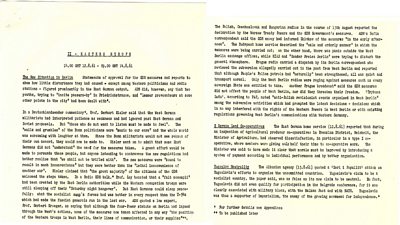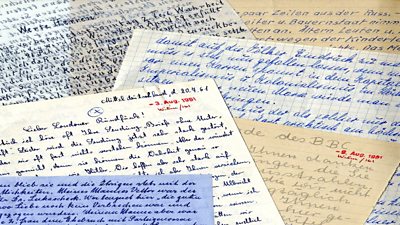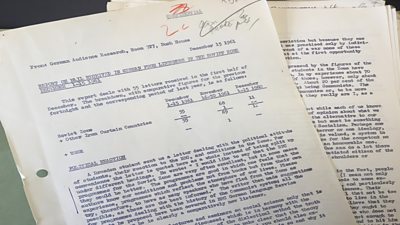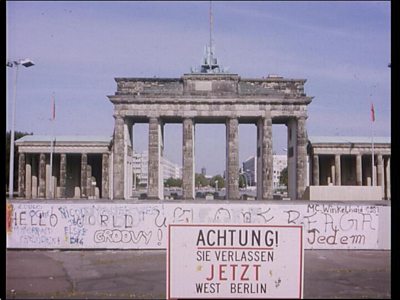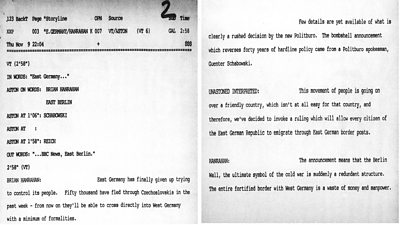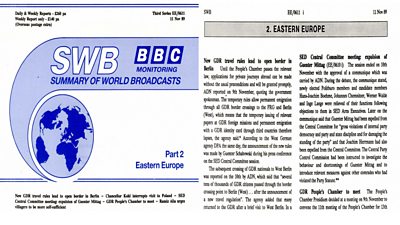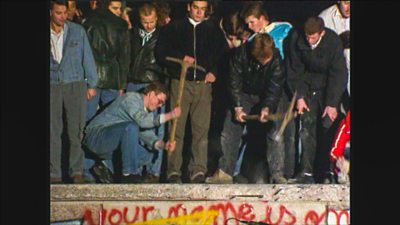On 9th November 1989, citizens from East and West Berlin flocked to the Berlin Wall with sledgehammers and pick axes and began to demolish the barrier that had physically and ideologically divided Berlin for more than 28 years.
Long before the wall went up, the �鶹������ҳ��� started to receive letters from listeners in East Germany - many featured in a weekly programme ‘Briefe ohne Unterschrift’ (‘Letters without Signature’). The Stasi (Staatssicherheitsdienst - the state security service) saw this programme as a form of psychological warfare aimed to destabilise the regime.
The construction of the wall started on 13th August 1961. �鶹������ҳ��� Monitoring compiled Summaries of World Broadcasts during that summer month and those reports contain information on how the rest of the world viewed what was happening in Berlin. Many citizens of the German Democratic Republic wrote to the �鶹������ҳ��� in desperation, appealing to the outside world not to be forgotten as the Berlin Wall was going up.
On 9th November 1989, the �鶹������ҳ���’s Brian Hanrahan reported in the Nine O’ Clock News on the bombshell announcement that citizens from East Germany would be able to cross directly into West Germany. By 11pm the checkpoints were open and the Berlin Wall had, in Hanrahan’s words, suddenly become a ‘redundant structure’. The fall of the iconic Cold War symbol marked the effective collapse of the German Democratic Republic. The political process towards the reunification of East and West Germany started within weeks, and was made official on 3rd October 1990, less than a year after the fall of the Berlin Wall.
The �鶹������ҳ��� Written Archives Centre holds files charting its broadcasting relationship with East and West Germany in series E1, E2, E3 and E40. Significant sections include over 300 files of letters sent from behind the Iron Curtain to the �鶹������ҳ��� (1955-1976) and the Summaries of World Broadcasts – daily digests of foreign radio broadcasts (1939-2001).
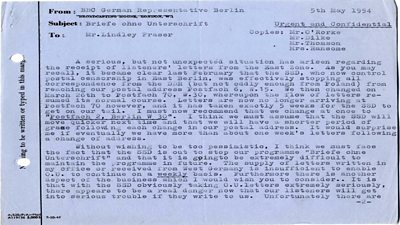
![Quote in German Letters which translates as If you have again violated [my] secrecy send my regards to the State Security Service!!!!](https://ichef.bbci.co.uk/images/ic/400xn/p08swgrc.jpg)
